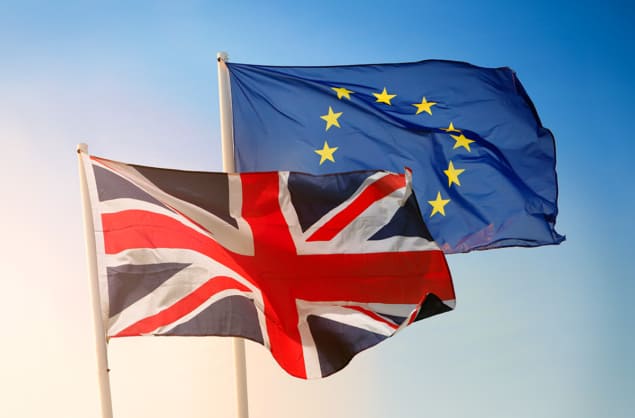
The UK government has today announced that it will re-join the €95bn Horizon Europe research framework. The agreement between the UK and the European Commission (EC) means that as from today, UK researchers can begin to apply for grants from the scheme.
The deal has been welcomed by UK scientists, who have long expressed dismay at the lack of progress over joining the world’s largest research and innovation funding programme.
“This is wonderful news,” Carsten Welsch, an accelerator physicist from the University of Liverpool, told Physics World. “The best science and innovation comes from international collaboration. Horizon Europe is the world’s flagship science programme and it is great that UK experts can now play a leading role once again.”
Before Brexit, the UK had been a full and highly successful member of previous EU research programmes receiving more money from the programme than it put in. In the seven years to 2013, for instance, UK scientists won €1.7bn in grants from the EU’s European Research Council – more than any other country.
The UK’s participation in Horizon Europe, which runs from 2021 to 2027, was agreed at the end of 2020 as part of the post-Brexit trade deal between the UK and EU. But as an associate member, it would no longer be able to take out more money than it pays in, meaning that the UK could lose access to a lot of extra funding.
Associate membership stalled, however, and became a bargaining chip in disagreements over Northern Ireland, which were resolved in March with the Windsor Framework. In recent months, the UK’s association with Horizon Europe has been held up by negotiations on the UK’s financial contribution to the research programme given it has missed more than two years of the seven-year programme.
After some challenging years where uncertainty made real progress difficult, the association with Horizon will boost interdisciplinary research
Carsten Welsch
As an associate member of Horizon Europe, Britain will now join other non-EU nations, including Israel, New Zealand, Norway, Switzerland and Ukraine. The European Commission says that UK participation in Horizon Europe will begin from 1 January 2024, while the UK government says that the UK will not pay for the programme between 2021 and 2024 – the time the UK was not in Horizon Europe. The agreement must be approved by the European Council before it is formally adopted.
The UK also announced today that it will associate to Copernicus, the EU’s €9bn Earth Observation programme. However, the UK says it will not join the Euratom programme, instead carrying out its own fusion energy strategy that will be funded with some £650m per year until 2027. The EC says that the UK will pay around €2.6bn a year to associate with Horizon and Copernicus.
Ian Chapman, chief executive of the UK Atomic Energy Authority welcomes the move and the “clarity” and “certainty” it provides to the sector. “The government’s commitment to an ambitious alternative R&D programme will be hugely important in sustaining the UK’s position as a leader in fusion R&D as well as developing an industrial capability to deliver future fusion power plants,” he says. “We welcome the ambition to retain, and even enhance, our international collaborative relationships through this substantial package of alternative R&D”
Best for science
The agreement has been welcomed by scientific bodies in the UK. “As the Institute of Physics has long highlighted Horizon association brings unparalleled opportunities backed by funding for collaboration – it is best for science, best for business and innovation, and best for the UK,” says IOP group chief executive Tom Grinyer. Delay joining the €95bn Horizon Europe programme puts UK science in limbo
Adrian Smith, president of the Royal Society, says association is a “big win”. “Our association to Horizon Europe is fantastic news, not just for the UK but for scientists across the EU and for all the people of Europe,” he says. “Science has so much to offer in terms of tackling global challenges and improving lives. Today the Government and the EU have given that a big boost.”
Smith adds that association will allow the UK “to continue to build on decades of collaborative research with our European partners and step up our global collaborations too to keep us as a nation at the forefront of science and innovation”.
More than money
While pushing to rejoin Horizon Europe, UK researchers have often stated that Horizon Europe is about much more than just finance, such as the research collaborations it enables.
Welsch lost a major EU grant last year because the UK’s association with Horizon Europe had not been finalised. “After some challenging years where uncertainty made real progress difficult, the association with Horizon will boost interdisciplinary research,” he says. “I look forward to embracing the many opportunities the Horizon programme offers.”




